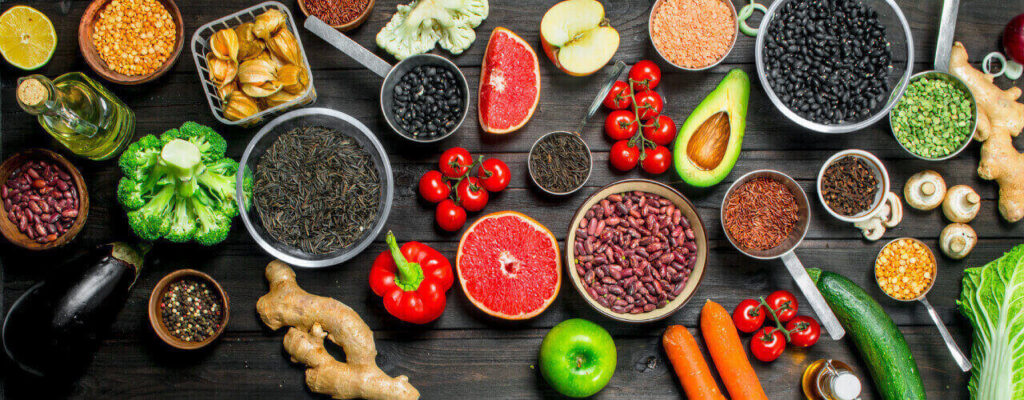3 Small Changes To Make To Your Diet To Relieve Inflammation

If you live with constant pain and inflammation, you are not alone. There are many chronic conditions that can lead to pain and inflammation; however, much of what you’re feeling can be managed simply through diet.
Your body is fueled by what you eat, so when you eat a nutritious diet your body is able to recover much faster. If you’re looking for advice on how to improve your diet and relieve inflammation, look no further.
Contact Schuster Physical Therapy today to speak with one of our physical therapists and learn how you can begin to relieve your pain and inflammation!
Why does inflammation happen?
If you have an infection, wound, tissue damage, or buildup of toxins in your body, the immune response is triggered to deal with it. Your immune system can naturally respond to injury, ailment, or other harm through inflammation. If didn’t occur, injuries wouldn’t be able to heal; however, if this process goes on for too long, chronic inflammation can occur — and that is not something you want to happen!
Chronic inflammation may lead to severe health conditions, such as diabetes, arthritis, heart disease, or even some forms of cancer. If you experience persistent pain, it is wise to contact a physical therapist as soon as possible, as it may mean that the inflammation has become chronic.
Traditionally, chronic inflammation has been managed with a combination of rest and medicine. Lack of activity, on the other hand, can exacerbate inflammation by constricting joints and stiffening muscles. Furthermore, drugs have a host of adverse effects, some of which can be harmful and/or addictive. Fortunately, pain and inflammation can be addressed in a variety of ways, including through nutrition.
How can a good diet help decrease inflammation?
Pain and inflammation can be relieved through proper nutrition, stress management, and exercise!
Inflammation is your body’s way of trying to heal, which can be accelerated through a nutritional diet that complements the removal of toxins. Nutritionists have had patients report great success in turning around their symptoms by adopting an anti-inflammatory diet.
These 3 dieting tips can help relieve your inflammation:
1. Eat less red meat
When following an anti-inflammatory diet, it’s advisable to stay away from red meat. If this proves impossible, tiny amounts of red meat are acceptable; nevertheless, it should be a very unusual treat in your diet. Because the proteins in red meat demand more work from your kidneys to digest, eating a lot of it will slow down the healing process. Fortunately, anti-inflammatory diets can include chicken and fish.
2. Avoid dairy and carbs
In order to strengthen your body’s immune response, you’ll want to avoid simple carbs and sugars. Unfortunately, that means no donuts, no pastries, and no white bread. Dairy products should also be extremely limited, so very little cheese or milk with anything. Whole grains, such as barley, oats, brown rice, and wheat are best.
3. Load up on veggies
When it comes to maintaining an anti-inflammatory diet, raw broccoli, brussels sprouts, cauliflower, and cabbage are the greatest choices. If you like, you can prepare them, although fresh vegetables are generally best for reducing inflammation. You can eat up to nine portions every day, and you can break it up by substituting fruits for a couple of those servings if it seems too excessive. Otherwise, the age-old adage “eat your vegetables” applies.
How can a physical therapist help?
Your physical therapist can also provide you with additional tips for pain relief and reduced inflammation. In addition to your nutrition plan, you should also try:
- Increasing your levels of physical activity. Exercise will keep the muscles warm, which can alleviate pain or stiffness, and stop the inflammation from becoming worse.
- Lowering your stress levels. If you’re feeling mentally stressed, your body can become physically stressed – causing more inflammation and a longer recovery rate. Taking time to relax can actually allow you to heal quicker!
- Managing your weight. If you have some unwanted weight, getting down to your ideal body weight will help with your pain and inflammation.
Call our clinic today for an appointment!
Are you looking to add a new nutrition plan into your lifestyle to help manage your pain? If you stick to the tips listed above, you should notice a decrease in pain.
Call Schuster Physical Therapy today to consult with a physical therapist and see how you can relieve your symptoms as quickly as possible!
Sources:
- https://www.health.harvard.edu/pain/can-diet-heal-chronic-pain
- https://www.webmd.com/pain-management/ss/slideshow-foods-fight-pain



